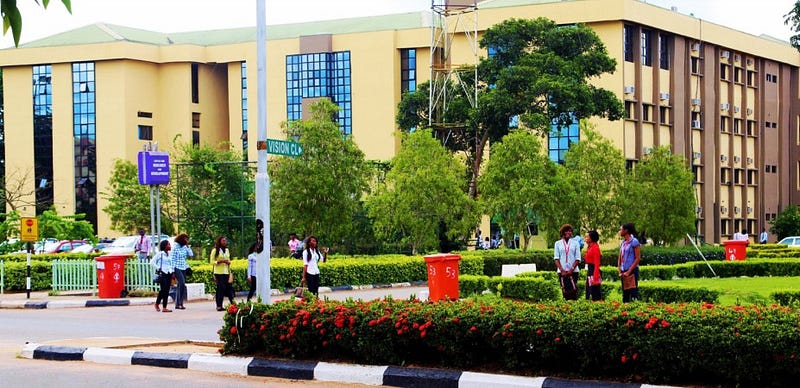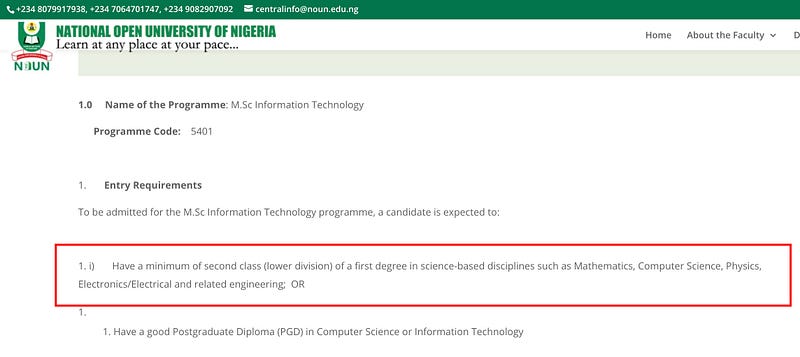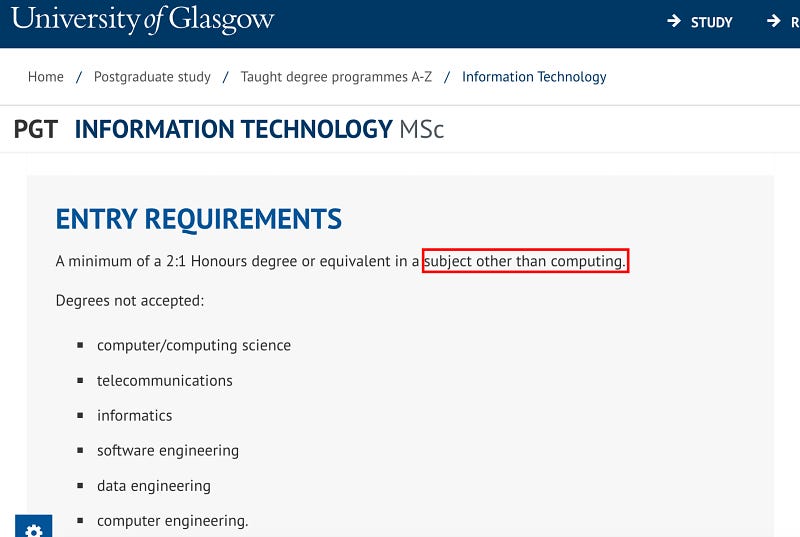
If everything aligns, I look forward to doing my Masters probably in Law & Technology. Sadly, no Nigerian university offers this except for Bayero, Kano. Big kudos to them 🙂 but I can’t go to Kano for a Masters I really don’t need.
It was a quest like this that landed me on the websites of National Open University (NOUN) and the University of Glasgow, Scotland and what I found is truly shocking. What I will reveal to you is one of the biggest reasons I think Africa is backward, today.
The course is Msc Information Technology and the entry requirements for both institutions is completely opposite. I mean 100%.
Entry requirements: NOUN
To be admitted for the M.Sc Information Technology programme, a candidate is expected to:
Have a minimum of second class (lower division) of a first degree in science-based disciplines such as Mathematics, Computer Science, Physics, Electronics/Electrical and related engineering; OR

Entry requirements: Glasgow
A minimum of a 2:1 Honours degree or equivalent in a subject other than computing.

The Problem
In a world where people with non-science related degrees are breaking into tech and succeeding at it, Glasgow University responds accurately by providing a Masters degree for them. They write —
The Masters in Information Technology is … a conversion degree programme intended for students without a computing science background. You will apply your knowledge and skills by conducting a development project.
Whereas, NOUN and other Nigerian universities still hold on to the 1960’s ideology and will never respond to the realities of today. As a result, our institutions are dying and have become living relics of the post-colonial past.
Delayed Relevance
Delayed relevance is a problem that has plagued Nigeria and Africa as a whole. We are a repository of old systems that fail to review and re-invent itself to meet current realities.
Just as many states depend on oil revenue share and refuse to innovate, so do our traditional universities. They rely purely on the essential need of a citizen to go to the university, not the value it can offer. I agree that our universities are quite cheap compared to Western ones but this shouldn’t be a reason to be backward.
With delayed relevance, we suffer from:
- Universities lose their appeal especially to someone who is purely in search of knowledge, not job
- Prospective students japa-ing for relevant and today-applicable courses
- Very low positions in global rankings, e.g., Times Higher Education.
- Limited innovation and economic growth. It limits our ability to compete globally and stifles the creative potential of our youth.
The Solution
I read an old English adage that says, “Change for the better as much as you can, but be sure its better before before change”. I am happy that African societies haven’t changed to embrace the LGBTQ advances from the West. That’s a wrong kind of change.
The right kind of change is what our institutions should embrace. Changing our curriculum and courses to meet make them relevant should be our priority.
To modernise our curriculum, I think Nigerian universities should:
- Partner with international institutions for curriculum development.
- Introduce interdisciplinary programs that reflect current market needs.
Leave a Reply